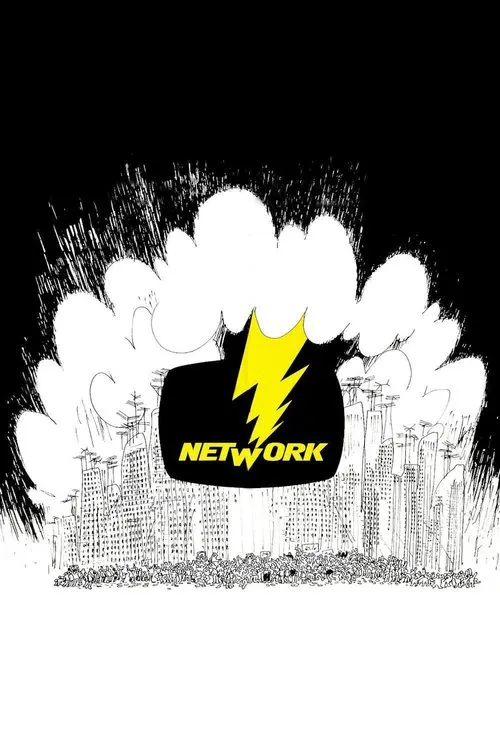Network

Plot
Released in 1976, director Sidney Lumet's 'Network' is a biting satire on the nature of modern media, consumerism, and the ways in which entertainment and the sensational can hijack the public's attention. The film, based on a screenplay by Paddy Chayefsky, weaves a story around the character of Howard Beale, a veteran news anchor whose 25-year tenure is cut short by his network when he reaches the mandatory retirement age of 62. As Beale prepares to bid farewell to his audience in his final broadcast, he shocks everyone by declaring that he will take his own life on air. This impromptu declaration is met with a mix of stunned reactions and genuine concern for Beale's well-being. Initially, the network sees this event as a publicity stunt to boost ratings, but Howard's genuine anguish gradually wins over their hearts, forcing them to rethink their decision. The network executives at the fictional UBS News - Howard Beale, Arthur Jensen ( Ned Beatty), Diana Christensen (Faye Dunaway), and Max Schumacher (William Holden) - are depicted as ruthless, cunning professionals only interested in maximizing their profits. Their main focus is increasing ratings and making money by any means possible, all the while pretending to prioritize good journalism. As they navigate Howard's unexpected actions, they also face internal conflicts and power struggles. Arthur Jensen, the sinister CEO of the network, is particularly ruthless in his approach. He is more concerned with promoting the interests of the company than the well-being of his employees or the public. In his famous monologue, he espouses a bleak vision of a world in which entertainment and spectacle have become the primary drivers of society. Arthur Jensen's character embodies the darker aspects of corporate culture, unapologetic in his pursuit of financial gain. In stark contrast, Max Schumacher, the president of the UBS News, is a more sympathetic and morally sound character. He is torn between his loyalty to his job and his concerns for Howard's well-being. Despite his own career ambitions, Max has a conscience, which puts him at odds with the callous and calculating approach of Arthur Jensen. Meanwhile, Diana Christensen, the beautiful and cunning young TV producer, plays a crucial role in reshaping the image of Howard Beale. Her character serves as a symbol of the changing face of television journalism, where aesthetics and spectacle are now more important than the quality of the content. Diana's rise to fame exemplifies the new breed of media professionals who prioritize entertainment over substance, often at the expense of genuine journalism. Howard Beale, played by Peter Finch, is the emotional heart of the story. He is a complex character, driven by a sense of desperation and frustration. As he grapples with the prospect of losing his job and his identity, he becomes an unlikely rebel and a symbol of resistance against the cold and calculating television executives. Through his character, the film explores themes of middle-aged crisis, existential angst, and the alienation of modern society. As the story unfolds, Howard becomes a pawn in Diana's game to boost ratings. His emotional outbursts and impulsive declarations make him a ratings sensation, drawing massive attention to the network. However, as his popularity soars, he starts to feel like a puppet on a string, manipulated by those who seek to exploit him. Ultimately, Howard's story culminates in a dark and tragic turn, one that underscores the film's central theme of the corrupting influence of the television industry. As the network's executives celebrate their newfound success, Howard is left isolated, a shell of his former self, crushed by the machine he once called home. The film ends with a haunting image of Howard's final broadcast, where he is now a shadow of his former self, addressing the camera with a mix of despair and hope. It's a powerful commentary on the darker aspects of our society, where the insatiable appetite for entertainment and spectacle can reduce even the most complex human beings to mere pawns. In conclusion, 'Network' is a masterful satirical film that offers a biting critique of the media industry and its values. Its themes of alienation, existentialism, and the corrupting influence of power are as relevant today as they were when the film was first released. With its razor-sharp writing, outstanding performances, and prophetic vision, 'Network' remains a landmark film that continues to captivate audiences and inspire reflection on the nature of modern society.
Reviews
Recommendations




